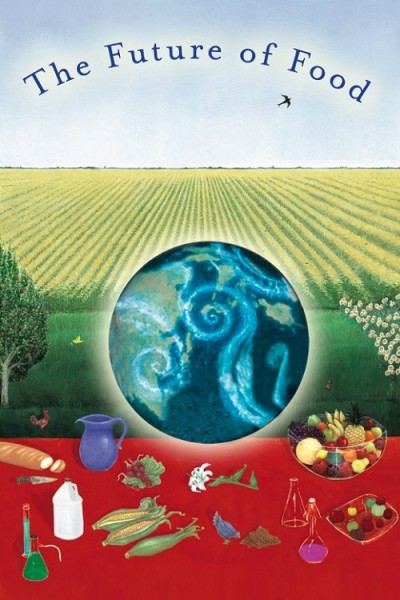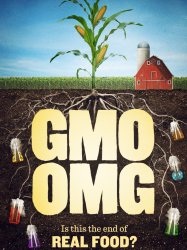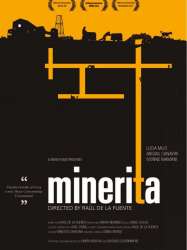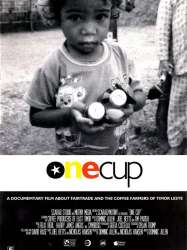The Future of Food est un film américain de genre Documentaire
The Future of Food (2004)

Si vous aimez ce film, faites-le savoir !
The Future of Food is a 2004 American documentary film which describes an investigation into unlabeled, patented, genetically engineered foods that have been sold in grocery stores in the United States for the past decade. In addition to the US, there is a focus on Canada and Mexico.
It voices the opinions of farmers in disagreement with the food industry, and details the impacts on their lives and livelihoods from this new technology, and the market and political forces that are changing what people eat. The farmers state that they are held legally responsible for their crops being invaded by "company-owned" genes. The film generally opposes the patenting of living organisms, and describes the disappearance of traditional cultural practices.
The film criticizes the cost of a globalised food industry on human lives around the world. It states that international companies are gradually driving farmers off their land in many countries, that monoculture farming might lead to global dependence of the human race on food corporations, and that there is an increased risk of ecological disasters caused by a reduction of biological diversity. For example, the local varieties of Mexican corn are being replaced by subsidized US corn.
It describes a fear of major losses to local food systems and states that these gene banks will no longer be available to save global industrial agriculture when a new pest arises, and that terminator genes could lead to a widespread catastrophe affecting the food supply, if they spread to plants in the wild. Legal stories reported by the film related how a number of farmers in North America have been sued by the Monsanto Company.
The film was written and directed by Deborah Koons Garcia, produced by Catherine Butler and Koons Garcia, and premiered on September 14, 2005 at Film Forum in New York City to a full house. It has since been released on DVD in both NTSC and PAL formats.
Synopsis
Partie pour enquêter sur l’utilisation des pesticides dans l’agriculture américaine, Deborah Koons Garcia s’est intéressée à la zone d’ombre qui entoure aujourd’hui les « aliments biotechnologiques ». Ses recherches l’ont conduite à poser des questions cruciales ayant trait aux OGM, à leurs effets inconnus et potentiellement catastrophiques sur la santé humaine et sur l’environnement.Commentaires
Postez un commentaire :
Suggestions de films similaires à The Future of Food
Il y a 8965 ayant les mêmes genres cinématographiques, 1248 films qui ont les mêmes thèmes (dont 93 films qui ont les mêmes 3 thèmes que The Future of Food), pour avoir au final 70 suggestions de films similaires.Si vous avez aimé The Future of Food, vous aimerez sûrement les films similaires suivants :

Trou Story (2011)
Réalisé par Richard Desjardins, Robert Monderie
Origine Canada
Genres Documentaire
Thèmes L'environnement, Le monde du travail, Documentaire sur le monde des affaires, Documentaire sur l'environnement, Documentaire sur le monde du travail
Note76%





Au Canada, le nord du Québec et de l'Ontario recèle d'immenses richesses minières, qui ont généré des profits faramineux, au mépris de l'environnement et de la santé des travailleurs. C'est une histoire qui passe par le nickel de Sudbury, l'argent de Cobalt, l'or de Timmins, le cuivre de Rouyn.

Bananas Unpeeled (2000)
, 26minutesGenres Documentaire
Thèmes L'environnement, Documentaire sur le monde des affaires, Documentaire sur l'environnement

Harlan County, U.S.A. (1977)
, 1h43Réalisé par Barbara Kopple
Origine Etats-Unis
Genres Documentaire
Thèmes L'environnement, Film libertaire, Politique, Le monde du travail, Documentaire sur le monde des affaires, Documentaire sur l'environnement, Documentaire sur la politique, Documentaire sur les technologies, Documentaire sur l'anarchisme, Politique
Note81%





La narration des 13 mois de grève des 180 mineurs de Brookside dans le Comté de Harlan (Kentucky).

God's Country (1985)
Réalisé par Louis Malle
Origine Etats-Unis
Genres Documentaire
Thèmes L'environnement, Documentaire sur le monde des affaires, Documentaire sur l'environnement, Documentaire sur une personnalité
Acteurs Louis Malle
Note74%





Chronique d'une petite ville du Minnesota, Glencoe, où Louis Malle fit deux voyages à dix ans d'intervalle.

GMO OMG (2013)
, 1h30Origine Etats-Unis
Genres Documentaire
Thèmes L'environnement, Documentaire sur le monde des affaires, Documentaire sur l'environnement
Note63%






My Enemy, My Brother (2014)
, 28minutesGenres Documentaire
Thèmes L'environnement, Documentaire sur le monde des affaires, Documentaire sur l'environnement
Note67%





Zahed Haftlang et Najah Aboud se retrouvent par hasard à Vancouver une vingtaine d'années après s'être respectivement battus pour l'Iran et l'Irak.

Mine Your Own Business (2006)
Réalisé par Phelim McAleer, Ann McElhinney
Origine Etats-Unis
Genres Documentaire
Thèmes L'environnement, Documentaire sur le monde des affaires, Documentaire sur l'environnement
Acteurs Phelim McAleer
Note60%






One Cup (2006)
, 28minutesGenres Documentaire
Thèmes L'environnement, Documentaire sur le monde des affaires, Documentaire sur l'environnement
 , 40minutes
, 40minutesOrigine Etats-Unis
Genres Documentaire
Thèmes L'environnement, Documentaire sur le monde des affaires, Documentaire sur l'environnement, Documentaire historique, Documentaire sur les technologies, Film catastrophe
Note57%






Fuck for Forest (2012)
Genres Drame, Documentaire
Thèmes L'environnement, Sexualité, La pornographie, Documentaire sur le monde des affaires, Documentaire sur le cinéma, Documentaire sur l'environnement, Documentaire sur la nature
Note52%





The documentary follows Fuck for Forest, or FFF, a non-profit environmental organization founded in 2004 in Norway by Leona Johansson and Tommy Hol Ellingsen, which raises money for rescuing the world's rainforests by producing pornographic material or having sex in public.
 Connexion
Connexion